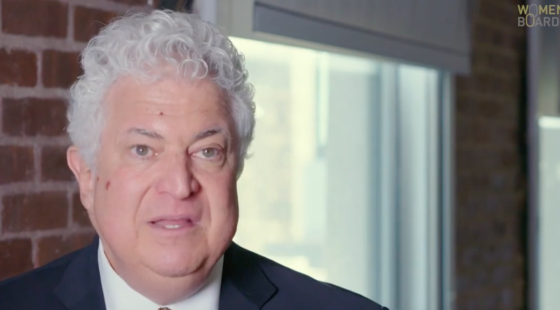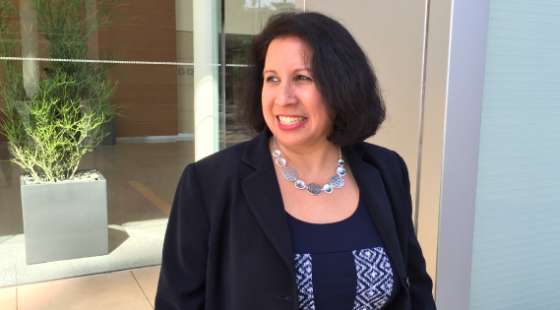 DEBORAH HENRETTA
DEBORAH HENRETTA
Independent Board Director, Corning Inc., Meritage Homes, NiSource, Godiva
Former Board Director, Staples and Sprint
Senior Advisor to the G100 Women’s Leadership Acceleration Program
Retired Group President at Procter & Gamble
Board Trustee at St. Bonaventure University and Xavier University
Deborah’s keys to success:
- There is no substitute for preparation. You either come prepared having thoroughly read the meeting materials or not.
- To maximize your impact, you will need to be thoughtful and considered in your questions and contributions. Focus on your areas of strength and rely on board peers in areas where they are the expert. Be as much of a listener as you are a contributor. And when listening, listen with the purpose of understanding rather than listening to respond.
- And finally, have high standards and conviction. Keep high standards for good governance, financial health and growth plans. When you speak, speak with purpose and conviction. There will be lots of very smart voices in the room. Make sure that your voice is heard and your ideas are duly considered, but do so in a way that is constructively persistent, open to diverse points of view, and collaborative in reaching decisions.
How did you get connected to your first board seat?
A former boss of mine at P&G, Susan Arnold, was asked by the then CEO of Sprint if she could recommend a woman for his Sprint board. Having worked for her for several years and showing promise as a rising business leader, she recommended me. I met with Gary Forsee, Sprint Chairman and CEO. Following a rigorous series of interviews, Gary offered me a seat on the board. I served on the Sprint Board through their merger with Nextel. I left the board when I accepted an international assignment leading P&G’s business in Asia. It is interesting to note that many of my subsequent board opportunities can be traced back to Gary and the other board directors I served with on the Sprint Board.
What steps did you take to prepare for the board interview process that benefited you most?
Research the company and their brand(s)—Do your homework.
- Know the company well before embarking on any interviews. Find all publicly available information you can on the company. If the company is a public company, read and review the past year financial statements, investor presentations, analyst reports, other regulatory findings, and media reports. Read several years of their annual reports, proxy statements, and sustainability reports.
- Know the “key players”, including board directors and C-Suite management: Read their publicly available profiles, backgrounds and connections to get a sense of who you would be working with. Do they have good reputations and a strong track record of success? Are they people you would want to work with?
Experience the company and their brand(s)—See it through the eyes of their consumers and customers. Visit the company and key brand websites—visit the stores, eat the food, use their products. Experience their social media presence by visiting their Facebook pages, Twitter accounts, Instagram, Snapchat, and so on. Find and read pertinent ratings and reports on the company and key brands.
Consider your value-add—Give considerable thought to where and how you can add value, and be ready to talk about it. Think in terms of your skills and capabilities, not just your jobs and experiences. Ask for and carefully read through the board spec to understand what they are looking for and speak to that. For instance, if a board is looking for someone with turnaround experience, focus on the times you have turned around businesses versus giving descriptions of every job you have ever had. Bottom line, boards will want to know how you can personally add value in needed ways.
Ask good questions—Your questions will be as important as your answers. Be ready with questions that help you know what you are signing up for. Ask questions that show you understand the business and that demonstrate your critical thinking skills. Asking good questions helps you get a sense of your fit with the company and with the board. Thoughtful, probing questions show the company you are interested enough to have done your homework and will help them evaluate your fit with the company.
How long did it take you to get your first corporate board seat after you started devoting time to the process?
At Procter & Gamble, where I spent most of my career, once you reach a C-Suite level position, the company encourages you to look for a board seat. P&G believes that outside board opportunities help you broaden your business perspective and experience, which ultimately helps grow your leadership skills and capabilities. Many companies seek out P&G leaders for board appointments. Given this, the company’s senior leaders are very helpful in directing you to open board opportunities.
Once you learn of an opening, board selection can take some time. Today, especially at public companies, most board selections are purposeful and planned processes. From the time you first get contacted about a role, selection can take several months to a full year. The urgency of filling a board seat can dictate a faster—though equally robust—approach.
What characteristic or behavior did you exhibit that you believe was a critical factor in your successful candidacy for your first board appointment?
Several behaviors were critical factors in my successful candidacies including:
Passion for the company and industry—You will need to invest a lot of time and energy into your board appointments so make sure it is something you are interested in and passionate about.
Forward-thinking skills—I am, by nature, a forward thinking change agent, and I feel that this skill has helped me win board seats and helps make me a valuable contributor on my boards. I also have a deep and growing knowledge in digital and the internet, which is a valuable skill as digital tools and technologies continue to seep into our daily lives. The nature of business today is dynamic and fast moving. As a board member charged with ensuring the company’s future, you need to be agile, open to change, and forward thinking. Good board members are constantly alert to important trends and signs of trouble. They help management assess risks, stay ahead of problems, and resolve issues to keep the enterprise growing.
Digital and brand-building expertise—I have particularly strong expertise and experience in building strong brands with a particular focus on building them in a digital environment and in turning around struggling brands and businesses. I think it is always helpful to have some strong, unique skills and capabilities which boards easily see as needed and helpful expertise. For some it will be legal, financial or governance expertise. While I have good competencies in those areas, I also bring strong brand business building capabilities with strong acumen in the digital space. This gives me a unique point of view and an area of expertise that gives boards an easy and clear way to see how I can uniquely add value to the business especially in the increasingly digital world in which we live.
How did you prepare – in every sense: emotionally, intellectually, practically, for your first board meeting and in what ways did that preparation pay off?
The key to any successful board meeting or interaction is rooted in three things: preparation, thoughtfulness and conviction.
There is no substitute for preparation. You either come prepared having thoroughly read the meeting materials, financial statements and business updates or not. Your preparation or lack thereof will be immediately apparent to management who know the business and to your board peers who have properly prepared.
To maximize your impact, you will need to be thoughtful and considered in your questions and contributions. Be as much of a listener as you are a contributor. And when listening, listen with the purpose of understanding rather than listening to respond. In doing so, you are sure to ask right questions, facilitate faster decision making and maximize your contributions to the board and the business.
And finally, have conviction. When you do speak or offer advice, speak with purpose and conviction. There will be lots of very smart voices in the room. Make sure that your voice is heard and your ideas are duly considered. And when you feel strongly, be constructively persistent in pushing your thoughts.
This conviction must be done with respectful toughness. You will need to be ready and expected to take on tough issues and work through difficult conflicts, but you must do so in ways that are respectful of your colleagues, acknowledge diverse points of view, and inspire collaboration.
What has surprised you about the reality of board service versus the expectations that you had coming in – in a positive or maybe not so positive way?
I am constantly and pleasantly surprised by my board experiences.
The work is quite different than that of a C-Suite line manager as we focus more on governance, long-term strategy, business delivery, and CEO/C-Suite succession. It helps you think bigger and broader about the business and organization.
And if you are lucky enough to be a part of a diverse board, you will be able to see the business through many different lenses with people who ask questions based on their differing life and work experiences and who approach problem solving and decision making differently. There is much to be learned from these varying perspectives. I have found that this diverse thinking leads to significantly better business decisions and business outcomes.
Help, hindrance or both – how does board service complement your professional career?
I have found my board experiences to be a huge help to my professional career. It has helped me develop new skills and capabilities by broadening my experience base and given me exposure to new and different business models.
What is your favorite thing about being a board director? Least favorite thing?
My favorite thing about being a board director is having the opportunity to meaningfully impact the strategic direction, financial health and sustainable growth for a company.
I don’t know that I have a least favorite thing, but I would offer a hardest thing about being a board director. For me, that hardest thing is learning how to impact through questioning and influence versus through acting and doing. There is a fine line and a hard balance between your board governance/oversight role as compared to the planning and execution role of management. The more experience you have on boards, the easier it is to find that balance and play your position.
How do you feel you are making a difference as a board member?
I can make a real difference as a board member. I am able to help affect the strategic direction of the company, help ensure financial & business health, help lay the foundation for future growth and importantly, help identify and support the next generation of board and top management leaders.
What one thing do you wish you knew before you started your board journey?
The one thing I wish I knew before starting my board journey was the importance of understanding the skills and capabilities of the board and the interaction of those board players with the management team. It is critical to understand and respect the talents and capabilities of the board individually and as a whole and importantly know how you can complement that board team. Relatedly, it is important to understand how the board members function with the management team.
Ideally board/management interactions are collegial and collaborative, but also ones where the board can and does ask the right, tough questions. You don’t want to have a board/management relationship that is “too comfy close” or “too distant & dysfunctional.”
What is the ONE essential piece of advice you’d give to other senior-level executive women who are on a journey to their first seat at the table?
My best pieces of advice to other senior level executive women who are on a journey to their first seat at the tables are:
Be patient—Board searches can and should take time. They are important roles with huge responsibility. Boards need to be sure they have rigorous selection processes. They thoroughly assess needed skills, experiences and capabilities, and that there is a good fit.
Take action—This takes two forms. First, actively work to broaden your experience and expertise through the positions you take and the jobs you choose. Second, actively seek out director opportunities. Don’t sit back waiting for someone to knock on your door.
Network, network, network—Join business associations, Chambers of Commerce and business networks where you have the opportunity to meet business leaders. For aspiring or newly appointed C-Suite talent, a good place to start is with your own board of directors. Chances are, your directors serve on other corporate boards with directors who serve on yet even more corporate boards. The linkages quickly become exponential and may help lead you to a right board opportunity.
What is your favorite leadership quote that has inspired you on this journey? – this could be your own personal mantra!
I have two:
I have always been guided by the notion that “Great leaders are those who imagine the future, inspire others to achieve and lift as they climb.” (Deb Henretta). Like management leaders, board members have unique and special roles in supporting the delivery of those three important leadership actions.
“A pessimist sees the difficulty in every opportunity; an optimist sees the opportunity in every difficulty.” (Winston Churchill). This quote is so appropriate for the board job. Some of the toughest and most difficult business, financial, strategic and organizational issues make it into the board room. You need to see the glass as half full, not half empty as you work collaboratively with board peers and management to turn these difficulties into opportunities to grow the business.
Deb is an Independent Board Director serving on 4 public company boards including Corning, Staples, NiSource and Meritage Homes. She also serves as a Senior Advisor/Independent Consultant to a portfolio of companies including Godiva, G100, General Assembly and InnovAccer.
Views From The Boardroom is an exclusive series from Women In The Boardroom, where corporate board directors share their experience, insight and wisdom and their view from the boardroom. Corporate board directors interested in participating should email bdust@womenintheboardroom.com.
The opinions and experiences expressed by the interviewees do not necessarily reflect those of Women in the Boardroom.






